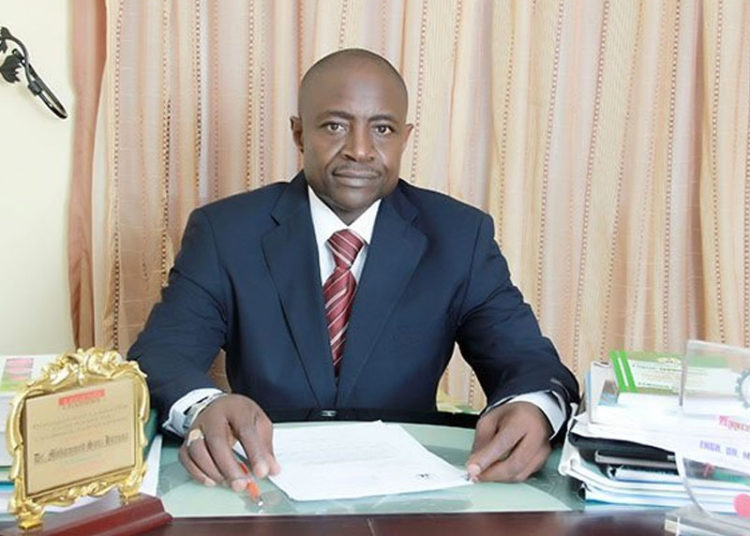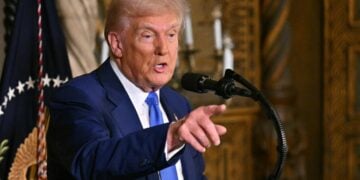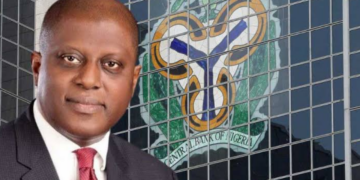Successive administrations have spoken glowing of plans to diversify the Nigerian economy from crude oil. Since crude oil was discovered in Nigeria, it has become the mainstay of the Nigerian economy as other sources of revenue were practically abandoned.
Some analysts have described the discovery of oil as a blessing and a curse as according to this line of thought, it has proved to be more of a curse to the country.
To buck the trend, President Muhammadu Buhari has prioritized agriculture as one of the ways to diversify the economy.
We recall that the president launched the Agricultural Promotion Policy (APP) which expired in December 2020. The policy was designed to ensure the provision of the required legislative and agricultural framework, macro policies, security, infrastructure, and institutional mechanisms to allow farmers access to essential inputs, finance, information, agricultural services, and markets.
The government launched the Anchor Borrowers’ Programme (ABP) in November 2015, to boost agricultural production and reverse Nigeria’s negative balance of payments on food.
The program targets those cultivating cereals (rice, maize, wheat, etc.) cotton, roots, tubers, sugarcane, tree crops, legumes, tomato, and livestock. Loans are often disbursed to the beneficiary farmers through banks. Upon harvest, the farmers repay by taking their harvests to ‘anchors’ who pay the cash equivalent to their bank accounts.
The President praised the nation’s farmers for the record production of rice and other food commodities, expressing satisfaction that the agricultural policies of the administration are working to good effect.
Speaking to the elected Local Government Council chairmen from Katsina state on a visit to pay homage to him marking the Sallah on Friday in Daura, Katsina State, said his administration had taken various decisions including the closure of land borders for two years for the benefit of farmers who were the driving force of the rural economy, expressing happiness that these had worked well for the nation.
Recently the administration went one step further in its plans to make agriculture one is the mainstay of the Nigerian economy. President Buhari approved N24 billion for the National Agency for Science and Engineering Infrastructure (NASENI) for the execution of a smart modular irrigation project.
Executive Vice Chairman/CEO of NASENI, Professor Mohammed Sani Haruna, disclosed this to State House Correspondents after a meeting with the President at the Presidential Villa.
According to him, the modular irrigation project would enhance agricultural development in the country, enabling farmers to produce crops three times round the year.
He said “last week, the President approved N24 billion for smart irrigation system, on request by NASENI. So, it is his thought if our money is remitted, why asking for further funding? Just to clarify the situation, not because of any other things, to know the status. And, of course, to give him exactly, as the Chairman of the Board NASENI, he should know to the last Kobo, what do we have, what don‘t we have, to guide his decisions on matters”.
“it is for the modular irrigation system. We have acquired 10-hectare farmland on lease in Adamawa State, using water from River Benue, where this pilot scheme is starting and it is estimated that, based on the technologies to be used there, it is possible to have three multi-crop seasons in a year, commencing from October this year, God willing.
“The monies are for the pumps, the structure, the farming techniques, the farmers, the officers, the offices that are needed, the vehicles, and the administrative management, up to the period that we will have this demonstration farm, using modular irrigation system first model. The first model in the sense that this one we‘re drawing water from River Benue, of course, solar powered.
It is instructive to note that the irrigation project will see the facility tap water from the Benue River, the main tributary of the Niger River, to supply farmers in the target area.
Modular smart systems
Water will be distributed through modular smart systems for sustainable agriculture. The smart devices would combine centralized watering technologies and soil moisture sensors to significantly reduce water consumption in times of drought. The future facilities will also help preserve the soil in Adamawa State, allowing farmers to produce crops three times a year.
To save water resources, the Federal Government of Nigeria is also promoting center pivot irrigation. This is a form of overhead irrigation, replicating artificial rainfall. It is suitable for flat land like that found in northern Nigeria. However, it is not suitable for growing certain cereals such as rice, which require a lot of water. In 2019, Kebbi and Zamfara states benefited from nine center pivot irrigation systems. The new facilities are improving agricultural production in the Sokoto-Rima river basin.
Experts have commended the president for the modular irrigation project. Recall that President Buhari has always insisted that Nigeria should grow what we eat.
Indeed, producing crops three times a year will in no time bring down the prices of food in the country as the farmers will even have enough to export. Presently oil seems to be a major earner of forex for the country.
NASENI will be at the forefront of executing the modular irrigation project.Irrigation systems are critical infrastructures for the world‘s food supply. Using a modern modular irrigation system, we get the best result in agriculture.
Explaining the funding of the agency, Professor Haruna said the statutory 1% of the Federation Account meant to be drawn for its running is dedicated to the execution of some priority projects that had been approved by the government.
“The application of these funds is in some priority projects approved by the government. The capital components include payment of 15% of the local counterpart funding for three key projects in the Power sector; the development and production of solar cells locally; the development and production of electric power transformers and the third one is a high voltage testing laboratory.
“Now, these are projects with 85% funding support from China, which is part of what is approved and being implemented in the 2021/2022 Borrowing Plan. That is number one and in that, out of the $48,879,103, representing 15% of what Nigeria is paying as the 15% counterpart funding based on the money remitted to NASENI in the first and third quarters. $23,928,063 had been remitted in these two quarters.
“The other areas of application of this fund include the development and domestications of technologies NASENI has to acquire from a partnering organization in Italy, de Lorenzo, in the production of technical science laboratory equipment for primary school, secondary school, and tertiary institutions.
“The third component is the development of skills development centers in six geopolitical zones. For now, one each per zone. The fourth component of application of this fund is in the development of three out of 12 new centers approved by the President for different states of the federation and of course, continue research and development, reverse engineering, and assembly of some military equipment in collaboration with two different private companies, that is Nigeria Machine Tools Limited, Oshogbo and PROFORCE, manufacturer of some military hardware, based in Ogun State, and of course, completion of the remodeled NASENI headquarters.
“These are priority areas where these funds have been applied. The briefings also included the newly developed equipment and machines that are needed to have mechanized farming. This simple, but needed equipment includes cultivation equipment, for planting, for weeding, for processing, harvesting, up to food preservation”, he said.





